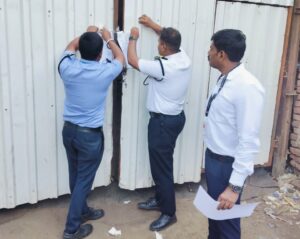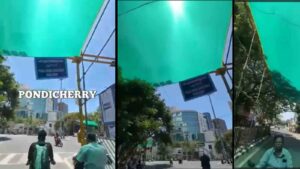Pune : Seven 24 hour noise monitoring stations to come up in Pimpri Chinchwad & Pune soon

Pune : Seven 24 hour noise monitoring stations to come up in Pimpri Chinchwad & Pune soon
Phase II of the National Ambient Noise Monitoring Network (NANMN) of the Center will soon see the installation of seven 24-hour real-time noise monitoring stations by the Maharashtra Pollution Control Board (MPCB) in Pune and Pimpri-Chinchwad.
Four of these stations will be located in Pune at Savitribai Phule Pune University (SPPU), in the Hadapsar Industrial Area close to Honeywell Industries, and on Karve Road, near Katraj Dairy. The three stations—Rose Garden near Bhosari, Dange Chowk, and Pimpri Chinchwad limits near Jagtap Dairy in Pimple Nilakh—will also be installed by the board.
Following the installation of similar stations in Mumbai as part of the network’s Phase I, the MPCB had intended to install 36 noise monitoring stations in Maharashtra’s urban areas this past year.
After many months, board officials said that these locations for Pune and Pimpri Chinchwad have finally been approved.
According to a senior MPCB official, they were asked to mark the locations and obtain no-objection certificates (NOCs) from the landowners where the project would be taking place. This has already been completed. Now that the board has given its final approval, the execution will start.
The Central Pollution Control Board (CPCB) guidelines were followed in the selection of the stations’ locations, which were categorized as residential, commercial, industrial, and silence zones. These locations were recommended following extensive discussions regarding areas where high decibel levels indicate that noise pollution is observed with the Pune Municipal Corporation and the Pimpri Chinchwad Municipal Corporation (PCMC).
The station’s equipment, which will be between 4 and 10 meters high, will measure noise levels every day between 6 and 10 p.m. and every night for eight hours, from 10 p.m. to 6 a.m., with a one-second sampling interval.
The value of the noise reports that are produced will be at its highest for a full day and night. These will be examined both annually and monthly to assess the level of pollution. The CPCB’s central receiving stations, where in formation recording is automatically transmitted, will regularly monitor this data.
After obtaining the necessary information, according to a senior MPCB official, they will assess possible solutions to the problems. If it’s in an industrial area, they will know why there’s noise pollution and suggest that businesses use acoustics to lower noise levels. For instance, they’ll make sure that honking will result in fines in areas where traffic generates the most noise. In order for the appropriate authorities to take action, they will also issue advisories.
With the help of these ambient noise monitoring stations, the board hopes to reduce the amount of noise pollution in the city. Depending on the findings, more will eventually be installed.










